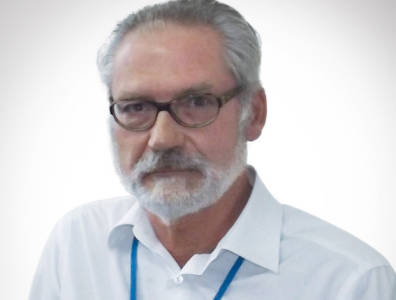
in figures
Storage capacity:1.3 mcm
Jetties in Sohar:6
Planned investment in infrastructure upgrades:USD 22 million
Storage at Sohar
July 6, 2016Ronald Okker, the CEO of Oiltanking Odfjell Terminals Oman (OOTO), talks with TOGY about the oil storage market in Oman, the company’s plans for new infrastructure and potential competition from the new port at Duqm. OOTO, operational since 2008, offers storage and handling of chemicals, LPG and petroleum products from its location in Sohar Industrial Port.
How has OOTO’s business been operating over the past few years?
The most recent development is that we are doing well commercially. We have a strong relationship with our existing customer base. We see a further strengthening of Sohar as a very strategic port at the right side of the Strait of Hormuz.
That led to an increase in our petrol business, especially the value-added activities connected to petrol: blending, additivation and the like. That also means that we are soon going to change the structure of our assets in the sense that we will invest around USD 22 million in upgrading infrastructure.
We already have six jetties, and all of our jetties will soon be connected to all of our tank pits. That means a far better balance between the availability of jetty lines and connection to the tanks. Apart from that, we are feeling so comfortable that in the next few months, we expect to get approval to further increase our capacity of clean petroleum product storage by 120,000 cubic metres.
The upgrade of our facilities is more or less ongoing. We are now in the tender phase with our contractors and that tender will be ready in June or July 2016. For the clean petroleum products expansion, we expect to get approval to start with the FEED and tendering procedure this year as well.
Are you collaborating with Orpic?
Orpic is a very important part of our business model. Partly, we are a so-called captive operator, which means that we take care of the supply and the offtake of products and feedstock from Aromatics Oman and Orpic. That is, we are an intermediary in the port.
In addition to that, we are also a traditional tank storage company. We store petroleum products for the big traders and NOCs. Our storage capacity right now is 1.3 mcm.
Will the further development of Oman’s petrochemicals sector and refineries also help OOTO’s business?
That is a good question. The answer, in theory, is very simple. The more the government wants to invest in production sites in the port of Sohar, the better it is for us. We are the sole provider of those liquid activities and the sole operator of those jetties. Anything the government decides to start with government-related companies is good for us.
But if the government decides to put its money into different geographical locations, for strategic political reasons, then it is not good for us. Duqm is a good example of this. The government has decided that it has to spread its strategic interests, but any petroleum products or petrochemicals that do not come to the harbour in Sohar are directly affecting our business.
Does that mean you see the new Port of Duqm as a competitor?
It can only be a competitor when it is operating. So far, it is not operating. I do not want to give an opinion on a potential competitor. The only thing I know is that the location of Sohar is extremely competitive. Whether the location of Duqm is as competitive remains to be seen.
Has the fall in oil prices affected your activities in Oman?
No. There has been no impact whatsoever. For a tank storage company, location is the most important thing. As long as people need oil, oil will be moving, irrespective of the price. There may be changes in the logistics patterns, but consumption will be there. I do not know that we will be unaffected in the future, but at the moment, the low oil prices do not harm us.
It is important to note also that low oil prices are good for refineries.
Who are your competitors at this point?
At the moment, our competition is not in Oman. Our biggest competitor is Fujairah in the UAE. I will feel extremely comfortable as long as we remain price-wise competitive, and as long as the port is willing to remain competitive against Fujairah. If the port has specific ideas on lease prices and wharfage costs, then it may well become less competitive.
How do you feel about the push towards Omanisation among local companies? Has it changed the way you hire and train local staff?
We are doing extremely well with Omanisation. Our level is almost 80% overall, and operationally, it is almost 100%. Although we have three shareholders – one Norwegian, one German and one Omani company – we act very much as an Omani company and want to emphasise that.
We have already earmarked certain Omani people to become management team members when they have reached a certain level. We are already training them to prepare them for these positions in OOTO. That will happen in years to come. We believe in Omanisation.
Read our latest insights on:


 Oman
Oman 














